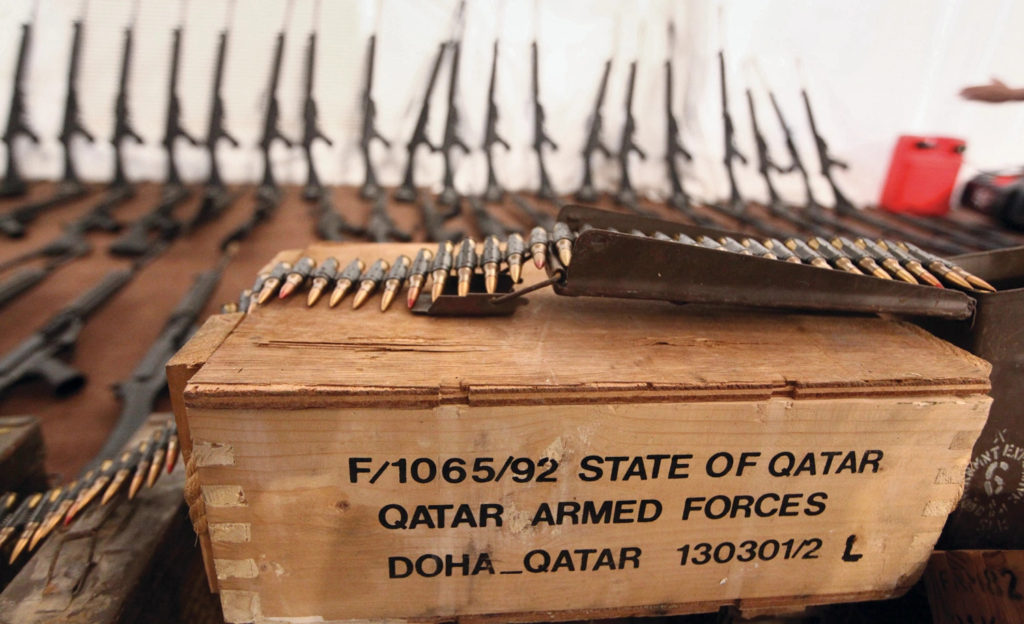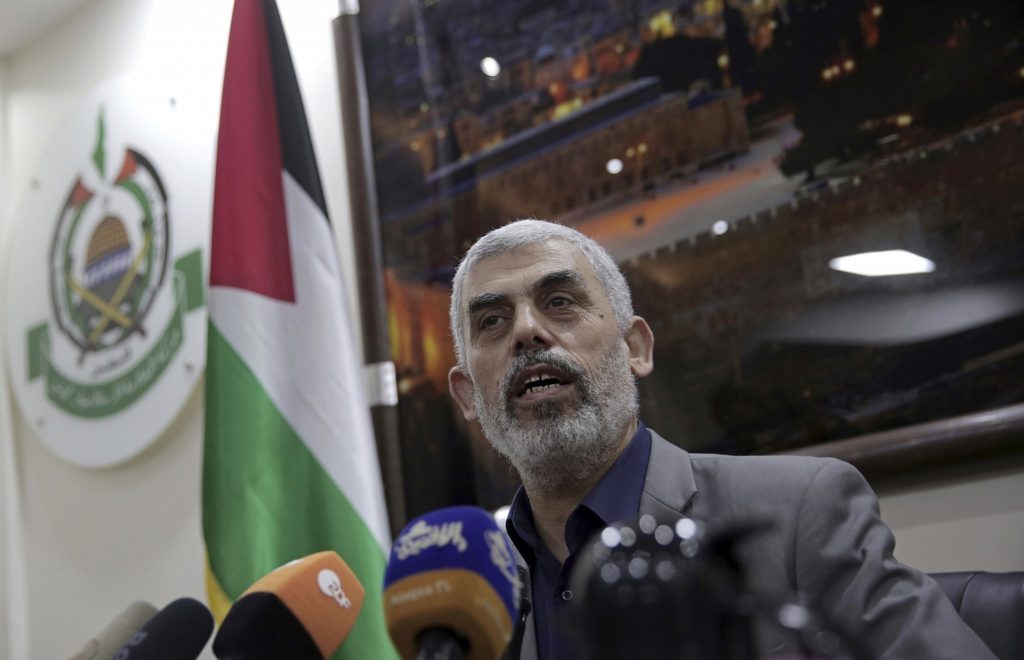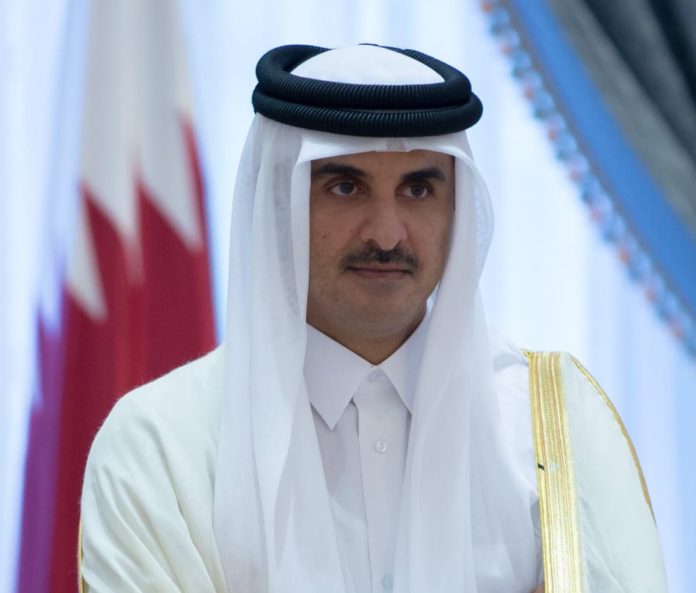“Everyone is critical of the flaws of others, but blind to their own.” Arab Proverb
On June 05, 2017, Saudi Arabia, Egypt, Bahrain and United Arab Emirates (UAE) severed diplomatic relations with Qatar and also placed land and air embargo. This move came as a surprise to many as this immediately followed U.S. President Donald Trump’s high profile visit to Saudi Arabia where most heads of Muslim countries gathered. The simmering differences between Qatar and its Arab neighbors reached boiling point resulting in the June shock therapy.
Qatar is a small country but in the last two decades it has gradually shown its presence on the international diplomatic scene. Qatar began its foreign policy as a broker of negotiations and mediator of conflicts. This combined with softer image of involvement in humanitarian and cultural interactions increased its profile and earned it genuine respect. However, in the last few years, it got directly involved in armed conflicts resulting in negative fallout.
Qatar’s policies clashed with the interests of Saudi Arabia and Egypt, two heavy weights of Middle East politics. The older generation of Saudi royal family worked on the Bedouin traditions and avoided public clashes with fellow Arabs. The new generation is removed from the traditions of their fathers, more ambitious and at times, reckless. There are three main players in the current showdown and include the 37 years old Emir of Qatar Shaikh Tamim bin Hammad al Thani, 31 years old son of King Salman Bin Abdul Aziz of Saudi Arabia, Deputy Crown Prince and Defence Minister Muhammad Bin Salman (known in western circles as Mr. Everything) and the 56 years old Crown Prince of UAE Shaikh Muhammad Bin Zayed al Nahiyan. The stage on which this cast is performing is a complex set of ideology, opportunism, ambition, tribal, clan and family dynamics.
The question is how Qatar embarked on an ambitious foreign policy agenda that ran afoul with many powerful neighboring countries? Any given foreign policy is seen through the twin pillars of impact on external security and internal dissent. A policy maker is usually cautious if a certain move would anger a larger neighbor and threaten the country’s external security or the general public not happy with the government will disagree resulting in negative effect on internal cohesion of society. Qatari rulers felt over confident on both fronts. The 1868 treaty with Britain ensured Qatar’s territorial integrity especially against the expanding power of al Saud next door big brother. The British security guarantee came with the control of the foreign relations of Qatar by Britain. In 1971, Britain departed and Qatar’s territorial integrity was guaranteed by the United States with the additional benefit that Qatar now controlled its own foreign relations. The anxiety caused by vulnerability of small states in the aftermath of Kuwait’s occupation by Iraq in 1990 was relieved by Qatar hosting a U.S. Air Force base (al-Udeid base near Doha). Internally, the Qatari population is more cohesive with majority Sunni population of same school of thought (Qatar is the only other country apart from Saudi Arabia that adheres to the Wahhabi school, albeit a softer version) and ruled by a Sunni Arab tribal family al-Thani considered first among the equals (this is in contrast to neighboring Bahrain where a Sunni family rules a disenfranchised Shia majority). Native Qatari population of only little over 300’000 out of a total population of about 2.2 million and with a sovereign wealth of over $240 billion made the job of rulers very easy. They provide cradle to grave benefits to native Qataris. The native population is content with free education, overseas education scholarships, first rate healthcare, secure lucrative jobs and a worry-free future. This ensures legitimacy of al-Thani ruling family without any threat from a disgruntled population. It is in this background that Qatar felt overconfident and embarked on policies that ran contrary to the policies of some big Arab countries, specifically Saudi Arabia and Egypt.
Qatar hosts Arab satellite channel al-Jazeera that gives coverage to dissidents of many Arab countries. This has been a bone of contention between Qatar and several Arab countries for long period of time. However, major conflict is Qatar’s support for Islamist groups of the Arab world, especially the Muslim Brotherhood branch of Egypt. Initially, Qatar tried to mediate between Islamist opposition groups and ruling Arab regimes. The Arab spring of 2011 changed Qatar’s calculus, Qatar saw it as an emerging trend and tried to ride this wave. It openly supported President Muhammad Morsi of Egypt and provided $12 billion to prop up his government amidst an economic crisis. A year later, Morsi was overthrown by military strongman Field Marshal Abdul Fattah al-Sissi and Saudi Arabia and UAE rushed to his aid providing financial support worth several billion dollars. Sissi cracked down on the Muslim Brotherhood and several leaders found refuge in Qatar. In this fight Egypt, Saudi Arabia and UAE are in one corner and Qatar in the other.

In 2011, Libya also erupted and Qatar supported Libyan Islamists with arms and money. Qatar’s two main armed proxies in Libya were Ali al-Sallabi and Abdul Hakim Belhaj. After Gaddafi’s removal and death, the country fractured into militia fiefdoms. Two main rival umbrella groups are now involved in civil war of Libya, the Islamist controlled General National Congress (GNC) and secular Libyan House of Representatives (LHR). Different armed groups and militias have joined these two rival groups for the control of the country. Qatar is supporting armed groups of GNC and rival armed groups of LHR are supported by Saudi Arabia and Egypt. Field Marshal Khalifa Belqasim Haftar is the head of Libyan National Army; the name given to LHR armed groups.
Qatar replicated the Libyan template when protests started in Syria against President Bashar al Assad in 2011. Shaikh Hammad (Tamim’s father) was a personal friend of Bashar and their wives were also close friends. Hammad dumped his friend and provided arms and money to opposition groups, mainly Islamists. The Muslim Brotherhood played a major role in Syrian National Congress (SNC); an umbrella group of different opposition groups. Qatar had significant influence over SNC in view of general support of Brotherhood. However, when Iran and Hezbollah openly sided with Bashar and early military gains of opposition groups were reversed, Qatar also hedged its bet. It now embarked on a dangerous journey and in search for looking for a more effective armed proxy found itself in bed with Jabhat al-Nusra (an al-Qaeda affiliate). This was followed by support for Ahrar al Sham al Islamiyyahm, a salafist militant group that became most effective in military campaigns against Assad. In the byzantine world of Middle East conflicts, Saudi Arabia was initially supporting salafist militant groups but later Qatar and Turkey became main supporters of Ahrar al-Sham. Saudi Arabia is now supporting Ahmad al Jarba whose fighters are trained by U.S. Special Forces.
In Palestine and occupied territories, Qatar and Saudi Arabia are also supporting opposing groups. Qatar has been supporting Hamas in Gaza strip while Saudi Arabia and Egypt support the Palestinian Authority (PA) in West Bank. Qatar’s financial support to Hamas and residence of some Hamas leaders in Qatar is resented by PA. They are of the view that Hamas rule in Gaza would have collapsed long time ago without Qatar’s help.
Qatar and Iran have shared economic interests and Qatar kept economic, diplomatic and security channels open with Tehran despite hostility of Saudi Arabia and UAE towards Iran. Qatar tried to walk a fine line to avoid open hostility of both Saudi Arabia and Iran. If one policy ran afoul, Qatar tried to compensate with other gestures. For example in Syria, Qatar was openly supporting armed groups fighting Iranian and Hezbollah fighters but softened the friction by directly signing security and economic treaties with Tehran. Qatar also supported U.S.-Iran nuclear deal that all other Arab countries opposed. It cooperated with Saudi Arabia in many areas to allay their anxieties.
The biggest unknown is unpredictability of new US president Donald Trump. The most serious concern will be if President Trump throws his lot with Saudi Arabia. In that case a simple threat of moving the U.S. troops from al-Udeid base in Qatar to neighboring UAE will take away the life insurance policy of Qatar. This will force Qatar to make concessions that it would not be willing to make. This move may also embolden the Saudis that could end up in some more reckless decisions. Qatar on its own part will try to appease the new American administration by trying another American weapons purchase binge.
Kuwait is the preferred mediator understanding local dynamics. In the current tug of war between Saudi Arabia and Qatar, the later has to pull back. There are several concessions that Qatar will likely offer especially in areas not directly affecting Qatar’s vital interests. The list will include asking Egypt’s Muslim Brotherhood members as well as Hamas leaders to find a new home, most likely in Turkey and pulling some support from its proxies in Syria and Libya. It will also ask Al Jazeerah to tone down criticism of neighboring countries. Qatar’s relations with Iran will be kept at current frequency with no new agreements in the short term. If these concessions satisfy Saudi Arabia and Egypt then a de-escalation process can start. However, it must be remembered that Shaikh Tamim is also an Arab and he will need some face saving to maintain his dignity and not be seen as capitulating.

A side show of current crisis will be the impact on occupied territories in Palestine. PA is taking advantage of the precarious situation of main backer of Hamas. It has decreased payment to Israel for electricity supply to Gaza and increased tariffs on diesel fuel that may result in forty percent cut down of electricity supply to Gaza. PA has already stopped medicine and medical equipment supply to Gaza. This is complemented by complete blockade of Gaza by Egypt. The hope is that this squeeze of Gaza population will force them to re-think about their support of Hamas. New Hamas leader Yahya Sinwar was summoned to Egypt and read the riot act. He was bluntly asked to start thinking about rolling back Hamas rule in Gaza and allow some space for Muhammad Dahlan, an old PA hand in Gaza and potential successor of Mahmud Abbas. Dahlan is based in Dubai and is a close friend of Crown Prince Muhammad bin Zayed and Egyptian President al-Sissi. Hamas is already feeling the heat from several directions and is considering concessions on many grounds. The clear and present danger is that this multi-faceted conflict between Palestinians and the worsening humanitarian crisis in Gaza will provide the perfect breeding ground for Daesh to get a foothold in the fertile terrain of hopelessness, misery, anger and resentment. Thanks to Palestinian infighting and changed ground realities, if ever a deal is reached it will not be a two-state but a three-state solution.
The price of brinkmanship of leaders is usually paid by their subjects and the ripple effect goes beyond the borders of their countries. Leaders surrounded by court jesters and with modus operandi of making decisions on whims and in a fit of anger without serious thought and without informed counsel usually end up in blind alleys. Everyone makes mistakes but a wise man grasps his folly early and acts quickly to minimize damage from an error.
“Arrogance diminishes wisdom.” Arab Proverb




